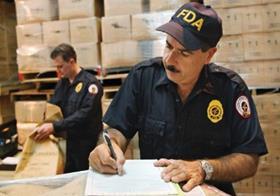
The United States Food and Drug Administration (FDA) has this week called for greater efforts to improve food safety practices in retail food establishments, specifically pointing to the need for the presence of certified food safety managers to oversee safety practices.
In a statement released on Friday, the FDA pledged to work closely with state and local governments and operators of restaurants, grocery stores and other food service establishments to prevent illness from contaminated food.
FDA's deputy commissioner for foods, Michael Taylor, cited the retail food industry's recent progress in key areas as well as room for improvements, based on the findings released in a new 10-year FDA study that tracked the retail industry's efforts to reduce five key risk factors: food from unsafe sources, poor personal hygiene, inadequate cooking, improper holding of food, and contaminated food surfaces and equipment.
In looking at the data, it is quite clear that having a certified food protection manager on the job makes a difference,' Mr Taylor explained. 'Some states and localities require certified food protection managers already, and many in the retail industry employ them voluntarily as a matter of good practice. We think it should become common practice.'
As part of the 10-year study, the 2009 food retail report found that the presence of a certified food protection manager in four facility types was correlated with statistically higher compliance levels with safety practices and behaviours than in facilities lacking a protection manager.
Mr Taylor noted than in addition to recommending the presence of protection manager, the new FDA initiative would also include increased efforts to encourage widespread adoption of the FDA Model Food Code by state, local and tribal regulatory agencies, and increased efforts for adoption of FDA's National Retail Food Regulatory Programme Standards.
'The key to food safety is prevention at every step from farm to table. Food retail managers, like growers and processors, have a responsibility to reduce the risk of foodborne illness,' he added. 'We want to build on past progress through continued collaboration with the retail industry and strengthened partnerships with state, local and tribal agencies in their standard-setting and compliance efforts.'
In the 10-year study, the FDA found that overall compliance improved in all nine categories of establishments featured, with significant improvements in produce marketing departments, elementary schools and fast food restaurants, among others.



